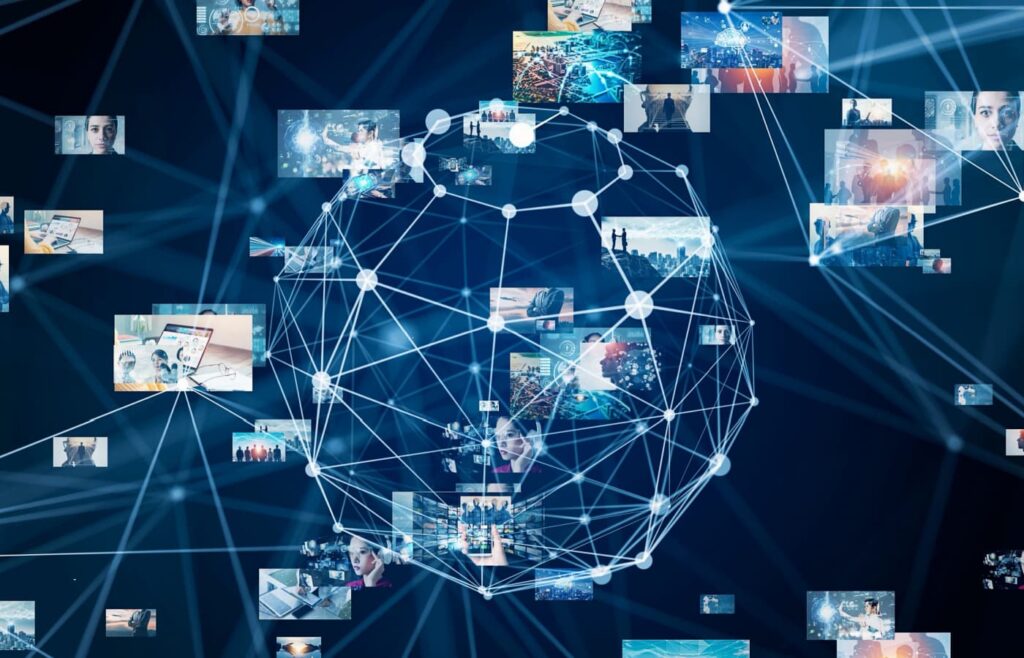
Global industry revolutions have been brought about by artificial intelligence (AI), which is having a particularly big influence on professions in business and media. AI is changing the nature of labor, the skills that are in demand, and the way businesses operate in both fields. These changes range from automation and machine learning to advanced data analysis and content production. We are going to look at the important ways that artificial intelligence (AI) is transforming the business and media environment in this blog, as well as the new opportunities and difficulties that come with this fast pace of technical advancement.
AI in Business: Redefining Roles and Processes

AI has changed an important tool that can enhance productivity, decision-making, and creativity in the business sector; it is no longer just a trendy term. Businesses now operate, simplify operations, and engage with consumers in a completely new way as a result of the implementation of AI into a variety of corporate tasks. Let’s explore some important areas where artificial intelligence is having a significant influence.
1. Automation of Routine Tasks
The automation of repetitive and normal jobs is one of the most noticeable effects of AI on employment in business. AI-powered bots and algorithms are taking over jobs that formerly required human attention, including as data input, invoice processing, and customer support questions. This opens up humans to work on more important projects. By offering 24×7 assistance and accurately addressing problems, chatbots and virtual assistants driven by artificial intelligence (AI) are enhancing customer service encounters.
Business personnel are now required to have more sophisticated problem-solving techniques, innovative thinking, and leadership qualities due to the shift toward automation. Artificial intelligence (AI) can do repetitive jobs, but it is still unable to match human creativity and emotional intelligence. Professionals with the ability to combine technical expertise with strategic thinking are in greater demand as a consequence.
2. Data-Driven Decision Making
Processes for making decisions in enterprises are changing as a result of AI’s real-time analysis of vast volumes of data. Businesses are using AI algorithms to find trends, predict patterns, and produce insights that may be put into practice and lead to expansion. Experts in data analytics, machine learning, and AI system management are now in demand as a result of this.
Proficiency in data analysis and AI is increasingly extremely important in the corporate world. There will be a great demand for experts who are able to interpret AI-generated insights and turn them into workable business plans.
3. AI in Human Resources and Talent Management
Employee engagement, performance reviews, and hiring procedures are all being made better by AI, which is revolutionizing HR departments. AI-driven systems are able to go through hundreds of thousands of resumes, evaluate candidate profiles, and match the most qualified applicants to particular positions according to qualifications, experience, and cultural fit.
Furthermore, through the analysis of behavioral patterns, early detection of discontent, and provision of individualized career development pathways, AI is assisting companies in enhancing employee retention. Employee engagement, talent development, and organizational culture are just a few of the important areas that HR managers may now concentrate on because of to the deployment of AI.
The necessity for ethical issues in AI usage has also been brought to light by the development of AI-driven recruitment tools. Two important issues that HR managers need to deal with are making sure AI algorithms are unbiased and encouraging diversity in hiring.
AI in Media: Revolutionizing Content Creation and Distribution

Because of the potential of artificial intelligence in content generation, customization, and delivery, the media sector is going through significant changes. Artificial intelligence (AI) is changing the way media professionals produce and distribute information to viewers, from newsrooms to entertainment platforms. These are some significant ways that AI is changing media jobs.
1. AI-Generated Content
These days, artificial intelligence (AI) can develop content that is identical to that made by humans. Artificial intelligence (AI) is being used by news organizations to create automated news reports based on data inputs.
AI is being utilized in the entertainment sector to write screenplays, compose music, and even make visual effects for movies. Producing content with artificial intelligence is not only more efficient in terms of time but also greatly economical. Media workers are being forced to adjust to new workflows where AI helps with content generation, freeing up time for more creative and editorial work.
Even while artificial intelligence (AI) can produce material rapidly, human creativity, narrative, and emotional depth still require human input. Instead than viewing AI as a substitute for human creativity, media professionals will need to use technology as a tool to improve their creative output.
2. Personalization of Media Consumption
The way that media material is consumed has changed as a result of AI’s capacity to determine consumer preferences. AI algorithms are used by streaming services like Netflix, YouTube, and Spotify to suggest material to users based on their viewing habits, preferences, and prior behavior. By using a customized approach, viewers are more engaged and return for more.
Media firms are investing in AI technology to better understand their audience and offer personalized content as AI-driven customization becomes more common. It is increasingly necessary for media workers to acquire skills in AI and data analytics, especially for those working in marketing, advertising, and content development, in order to provide engaging and personalized content that connects to their target audiences.
3. AI and the Future of Journalism
AI has exciting possibilities and difficult implications for journalism. One way that AI systems assist journalists is by automated fact-checking, summarizing complicated articles, and using social media research to find popular subjects. By combing through massive databases to find hidden patterns and stories, artificial intelligence (AI) also helps investigative journalism.
But the recent increase in news produced by AI has raised questions about false information and the moral implications of automated reporting. It is now a problem for journalists to make sure AI-generated information complies with journalistic standards for equality, fairness, and accuracy. The generation of content is no longer the exclusive domain of journalists; they are now also responsible for the selection and verification of AI-generated information.
The Changing Skill sets for Business and Media Professionals

The skill sets needed by professionals in business and media are changing as a result of the quick adoption of AI in these domains. Employees must adjust by learning new skills that go hand in hand with AI technology as AI is incorporated more and more into daily operations. Some of the essential abilities that are in great demand are listed below:
1. Technical Skills
AI, machine learning, and data analysis technical abilities are becoming more and more essential for people in business and media. Making wise judgments will need an understanding of how AI algorithms operate as well as the ability to evaluate insights produced by AI.
AI platforms and solutions that optimize workflows and boost productivity are also likely to be recognizable to professionals in these sectors. People will have a competitive advantage in the employment market if they can learn to work with AI technologies.
2. Creativity and Innovation
Artificial intelligence (AI) is great at processing data and automating activities, but it is not as creative or innovative as humans are. Professionals in business and media that offer creative problem-solving skills, can handle challenging situations, and can come up with novel solutions will always be in great demand.
In the media, originality is essential for creating compelling material that appeals to viewers. Innovation in business promotes expansion and keeps organizations competitive in a market that is changing quickly.
3. Ethical Considerations
Concerns regarding the ethical use of AI are becoming more and more important as it continues to impact jobs in business and media. When it comes to issues like data privacy, discrimination in AI algorithms, and the effects of automation on the workforce, professionals need to be knowledgeable of the ethical consequences of utilizing AI.
Accuracy and openness in media are dependent on ethical journalism, and responsible use of AI technologies is necessary to preserve public confidence. Businesses need to use AI to make decisions, but they also need to maintain their corporate social responsibility and ethics standards.
Conclusion
AI is having a revolutionary effect on professions in business and media, creating both new chances and difficulties. AI is helping businesses become more productive, automate repetitive operations, and make data-driven decisions. It is transforming the production, distribution, and customization of content in the media. Professionals in these fields will need to adjust as AI develops further by learning new techniques, encouraging innovation, and tackling moral dilemmas. Artificial Intelligence will not take the position of human experts; rather, it will enhance existing skills, resulting in more creative and exciting employment in the future.
Real Also:- Your Guide to Building a Portfolio Website in One Weekend || LLM After LLB: Navigating Your Legal Career Path

